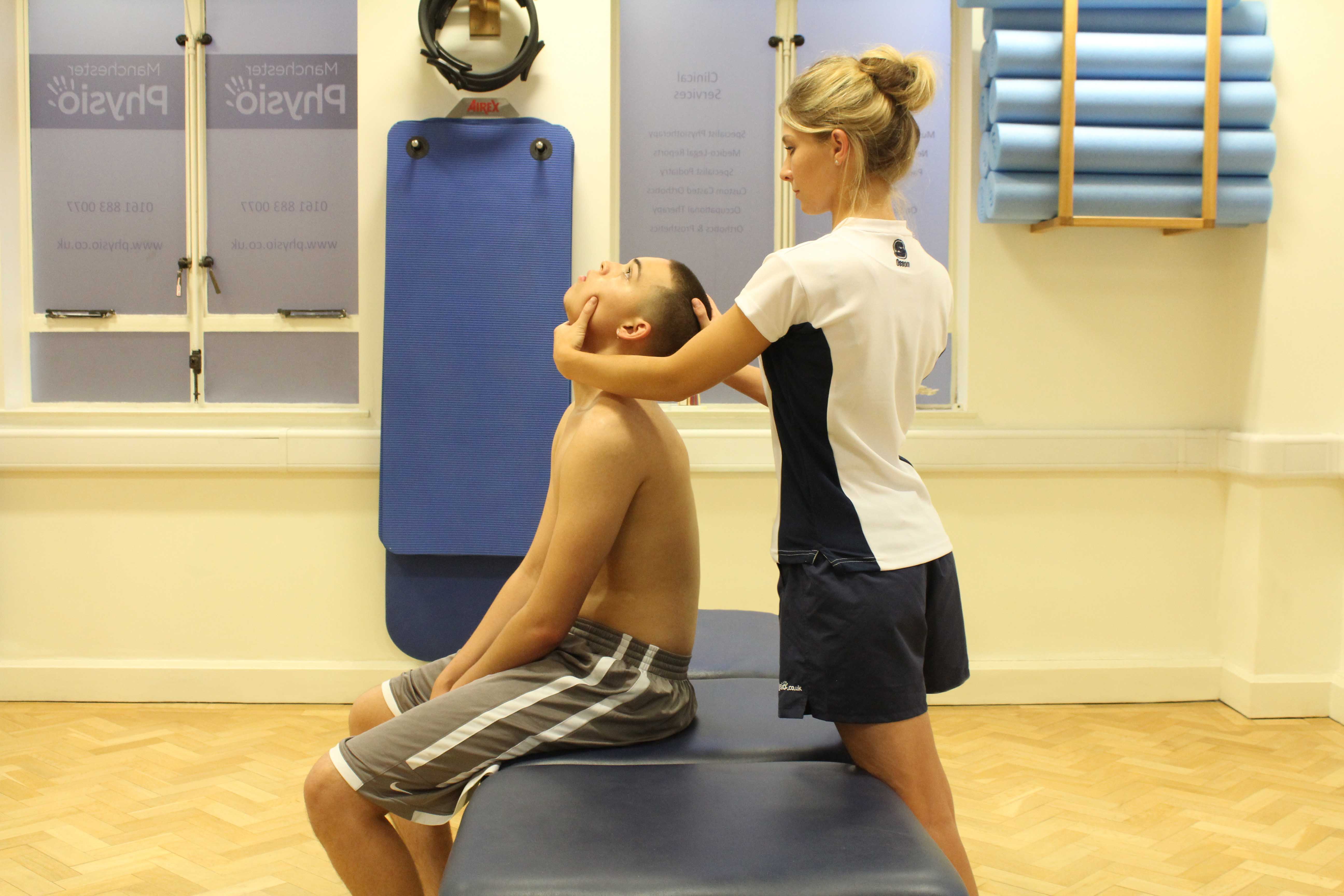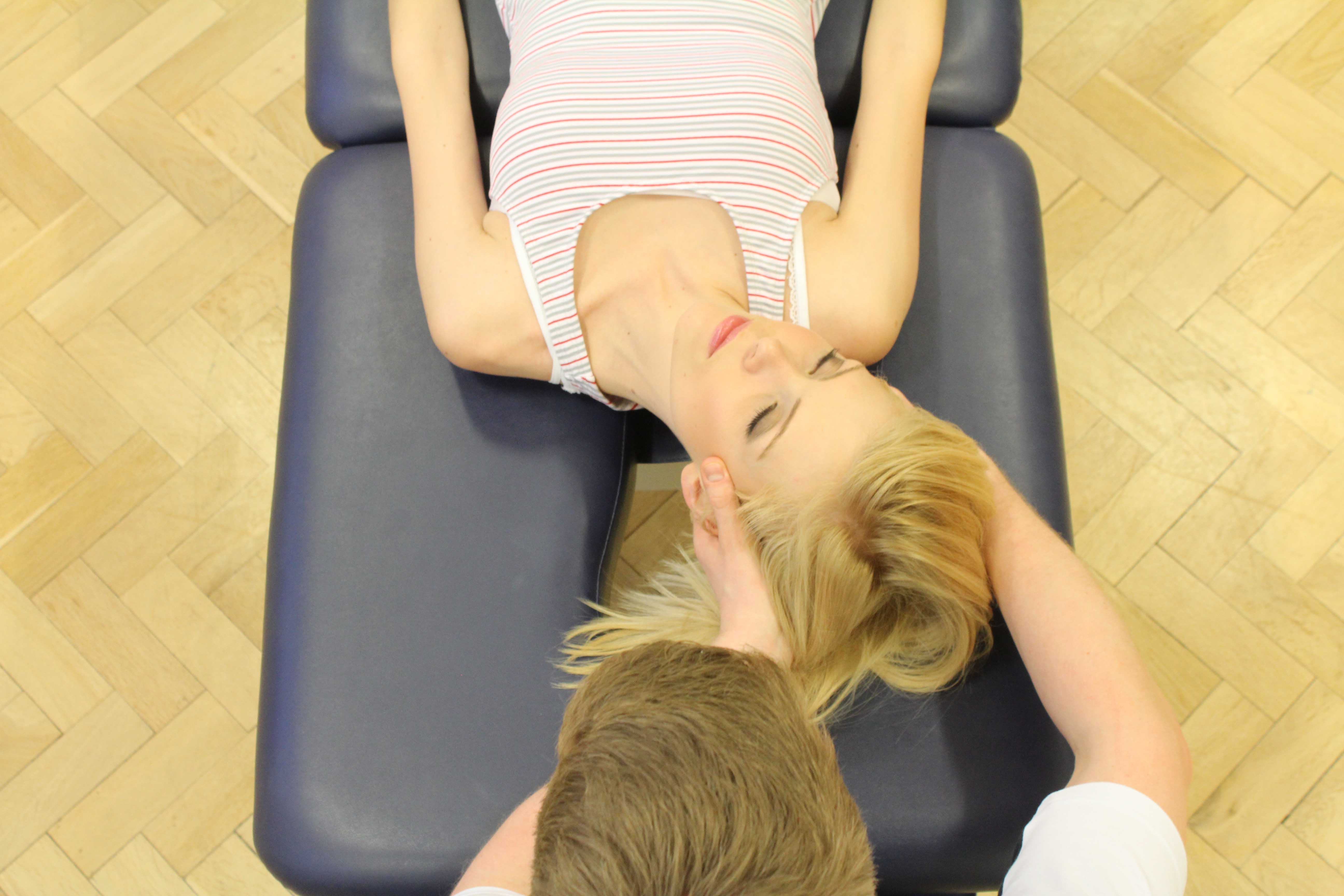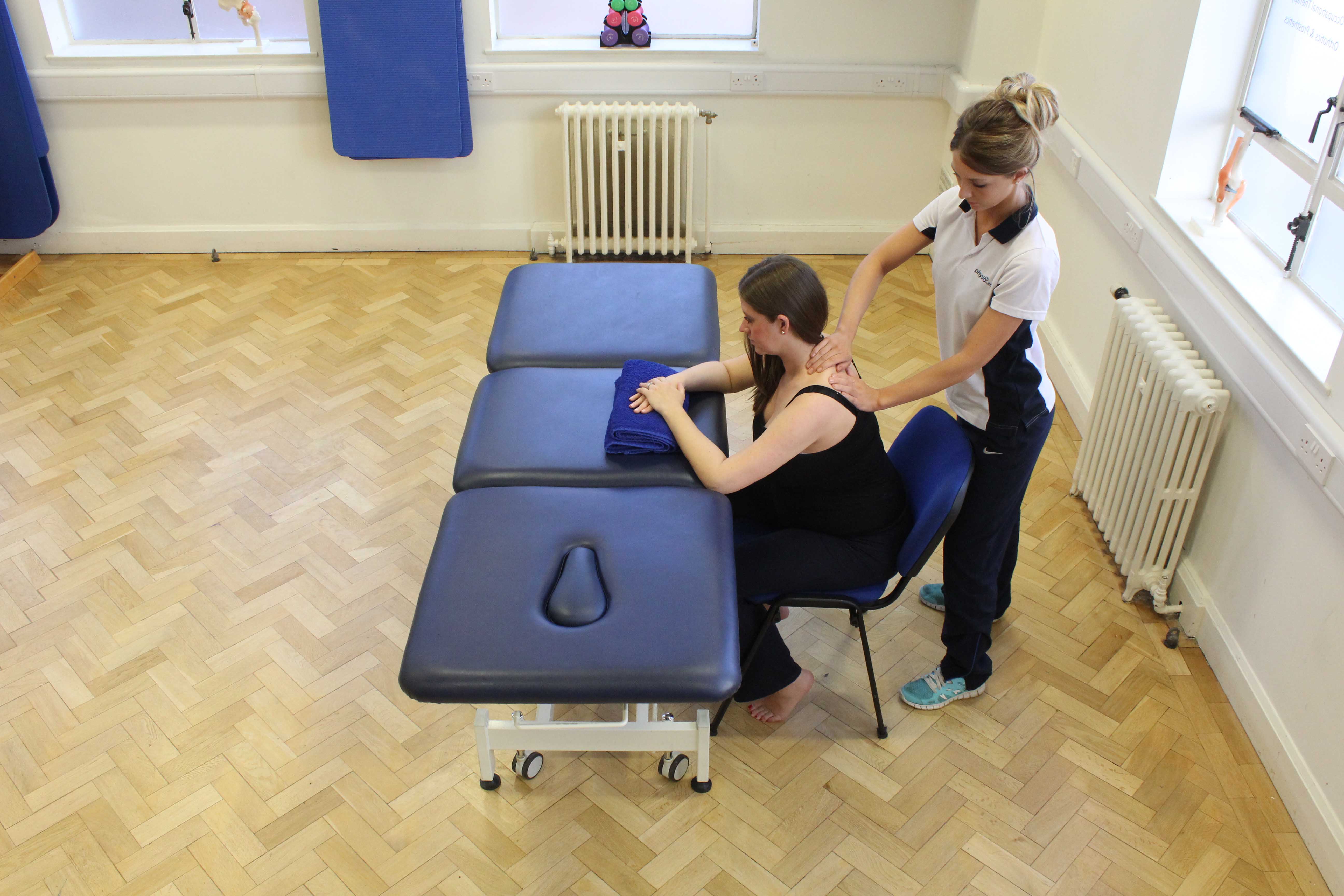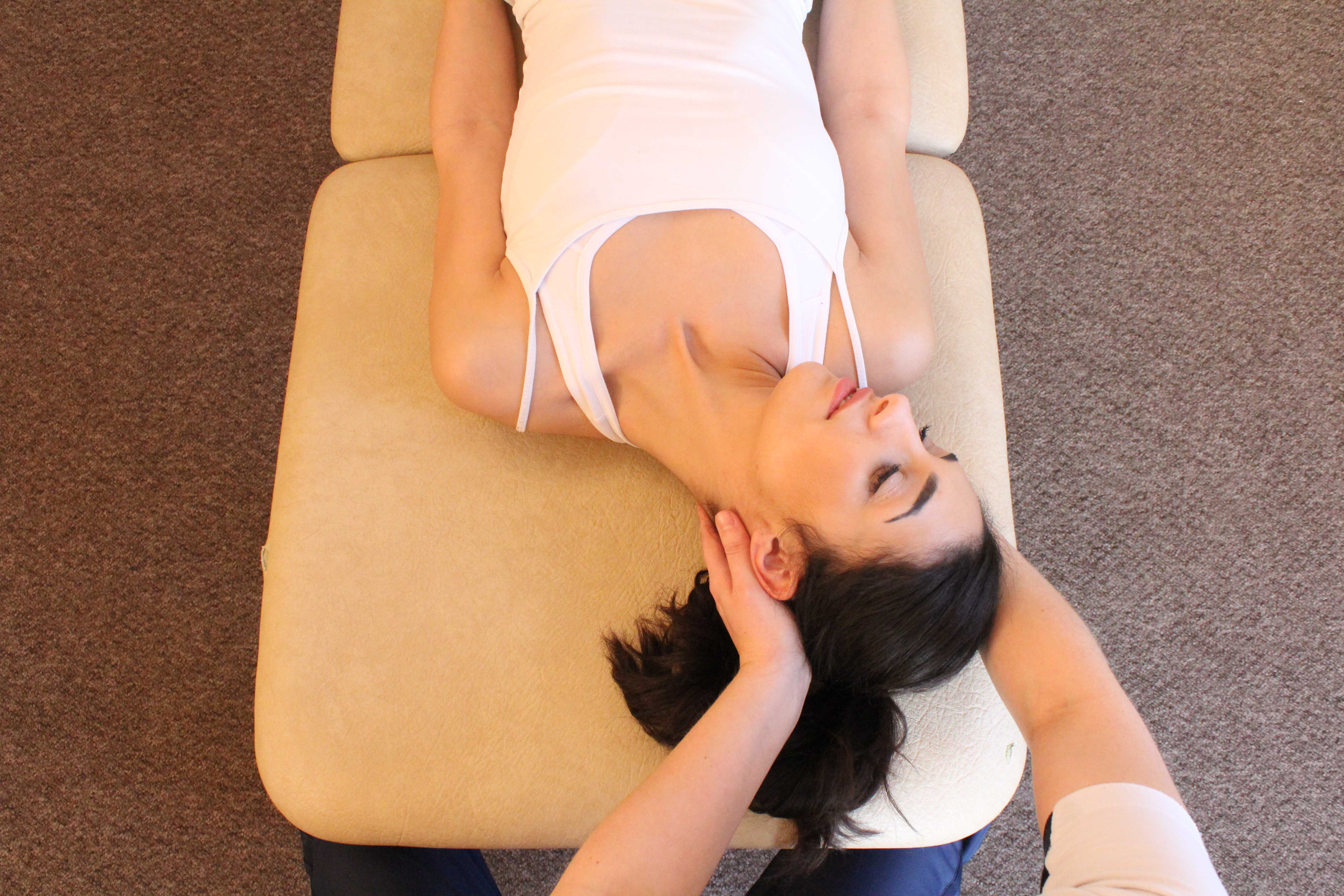What is a postural kyphosis?
A postural kyphosis is the curvature of the upper back (thoracic spine). This curvature also causes the chin to become ‘poked’ out in front of the body. Physiotherapy can effectively reduce symptoms of postural kyphosis.
 Above: Stretches and realignment of the cervical spine by therapist
Above: Stretches and realignment of the cervical spine by therapistWhat can cause a postural kyphosis?
A postural kyphosis is caused by sitting for long periods in a slouched or slumped position, increasing the natural curvature of the spine. Postural kyphoses commonly develop during adolescence. Our posture tends to get worse as we get older; therefore, postural kyphoses are common in older people.
What are the symptoms of a postural kyphosis?
Many individuals with a postural kyphosis are symptom-free. The curvature of the spine and chin poked posture can be obvious to see if looking at the individual from a side profile in sitting or standing. A postural kyphosis can be a cause of many other problems, such as, neck pain, upper back pain, stiffness, reduced mobility, falls and headaches. Other symptoms include:
 Above: Experienced Physiotherapist conducting an assessment of the cervical spine, muscles and connective tissues in the neck
Above: Experienced Physiotherapist conducting an assessment of the cervical spine, muscles and connective tissues in the neckWhat should I do if I have a postural kyphosis?
If you have a postural kyphosis with or without symptoms it is recommended that you organise an assessment with a physiotherapist.
Physiotherapy for a postural kyphosis.
The physiotherapy that you receive for your postural kyphosis is dependent on your symptoms, your age and your level of activity. Your physiotherapist will first perform a thorough assessment prior to the provision of any treatment. Physiotherapy treatments include:
- Electrotherapy
- Manipulation / Mobilisation
- Exercise Programmes
- Soft Tissue Treatment
- Proprioceptive Exercise
 Above: Soft tissue massage of the muscle and connective tissues in the neck by specialist MSK therapist
Above: Soft tissue massage of the muscle and connective tissues in the neck by specialist MSK therapistDoes a postural kyphosis have any long-term effects?
Yes. Without treatment your postural kyphosis will continue to worsen. You may currently have a pain-free kyphosis but if you do not improve your flexibility, muscle strength and posture then the chances are that you will experience problems related to your kyphosis in the future.
 Above: Stretches and mobilisations of the cerival spine, muscle and connective tissues in the neck
Above: Stretches and mobilisations of the cerival spine, muscle and connective tissues in the neckTo arrange a physiotherapy appointment call Physio.co.uk on 0330 088 7800 or book online.

 0330 088 7800
0330 088 7800


































